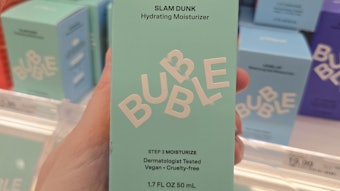
Global sales of anti-pollution ingredients exceeded US $870.4 million in 2022 and are likely to witness a healthy 5.4% growth in 2022, according to an intelligence outlook published by Future Market Insights (FMI). The report forecasts a promising increase for the global anti-pollution ingredients market over the years to come, owing to a dramatic rise in the incorporation of active, functional ingredients in personal care and cosmetic products with anti-pollution effects.
Skin care accounts for nearly half of the total demand for anti-pollution ingredients, according to FMI’s findings. For example, facial masks and moisturizers are high-selling, anti-pollution skin care products.
While the functional focus of a majority of skin care ranges available on the market is limited to the skin surface, manufacturers are reportedly augmenting investments in the R&D of novel solutions that would penetrate into deeper dermal layers and reach the cellular level to prevent the pollution-induced effects of premature skin aging.
Players active in the hair care space are also generating sizeable demand for anti-pollution ingredients, prominently for shampoos and conditioners, the firm adds.
Opportunities in Purchasing Patterns, Pollution
FMI reports consumers in developed regional markets, particularly Europe, have been using cosmetics and personal care products that go beyond moisturization and anti-aging to address the adverse impact of pollutants on skin and hair. Globally leading brands will continue to eye opportunities hinted by the changing purchasing patterns of these consumers.
Related: Algorithm Formulated to Assess Environmental Risk of Personal Care Products
Across the globe, anti-pollution cosmetics and personal care products also have been established as a popular trend in Asian countries. According to FMI, the trend has caught on quickly and the considerably large consumer population is ready to invest more in products that protect against ever-increasing levels of pollution. Currently, the East Asia-South Asia-Oceania cluster accounts for more than 50% of global anti-pollution ingredient sales, as indicated by the report.
The report further cites the rampant rate of increasing pollutants and particulate matter in the air for creating profitable business opportunities for anti-pollution ingredients manufacturers. For example, a recent (2018) collaboration between A.S. Watson and Shiseido introduced the Urban Damage Skin Care anti-pollution range in Thailand, Taiwan and China.
Nontraditional Ingredients Gain Momentum
Analyzing anti-pollution ingredients by type, FMI finds that polymer-based and antioxidant ingredients remain highly preferred among both manufacturers and consumers. The market also has witnessed innovation patterns involving nontraditional actives such as vitamins E and A, and other polymer based ingredients. Anti-pollution ingredients such as plant extracts, activated charcoal and metal chelators gained momentum in the recent past.
According to FMI, as consumers continue to seek natural product labels and claims of protection against pollutants, manufacturers of anti-pollution ingredients will maintain a focus on innovative formulations. Furthermore, enhancing the efficacy of existing ingredients and evaluating novel anti-pollution ingredients currently interest the majority of leading players in the market.










